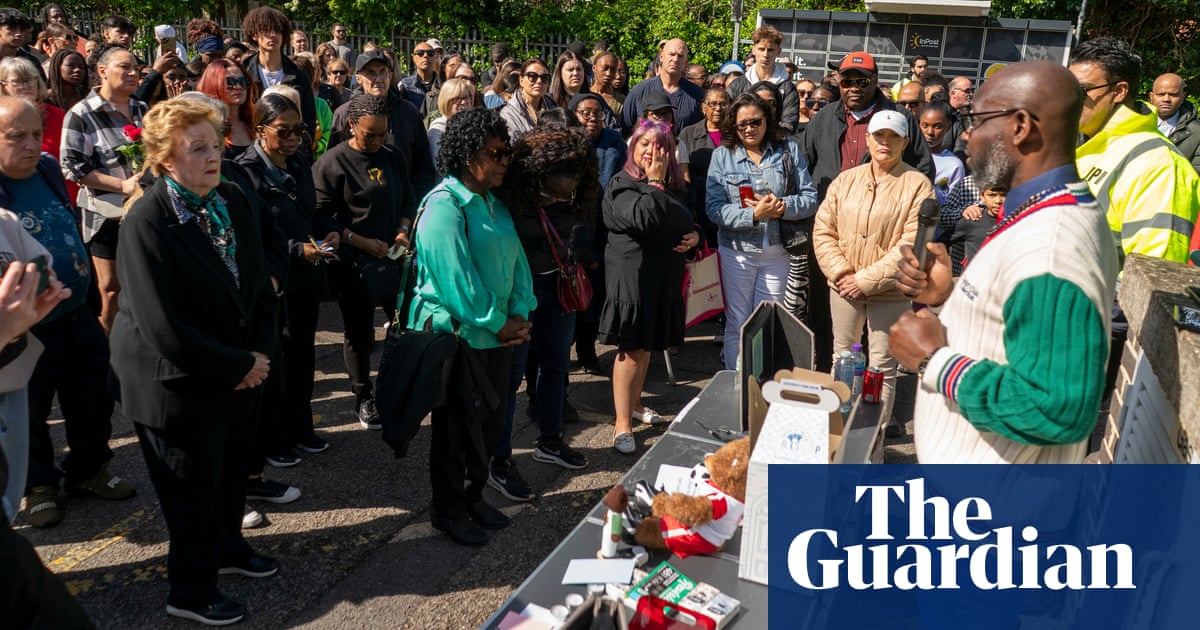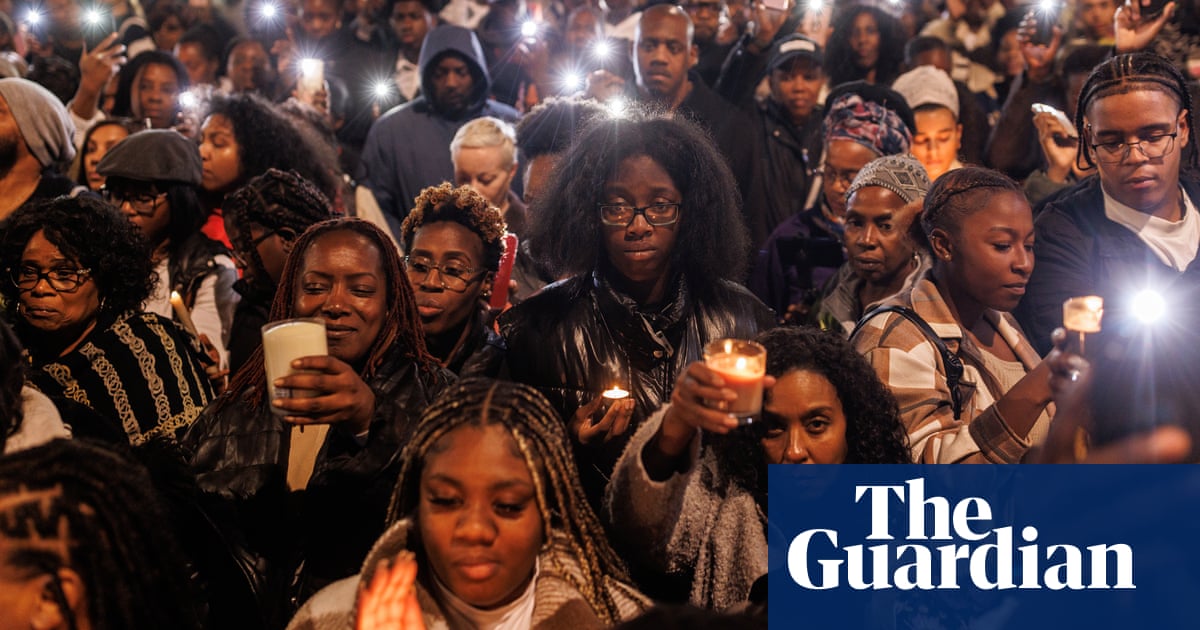
Hundreds of people dressed in white gathered for a silent vigil for Zara Aleena, the 35-year-old law graduate who was killed as she walked home from a night out.
A deep solidarity and loss was palpable among the tearful crowd in Ilford, east London, on Saturday – a community still gripped in shock and fear by Aleena’s death, and the growing insecurity women face in public spaces.
“She is not responsible for what happened to her, society is responsible for what happened to her,” Anjum Mouj, a co-chair of the London Black Women’s Project, said forcefully to a pooling crowd.
“It’s 2 July, nearly 60 women have died this year … shame on our society, shame on our political leaders, that they for one moment thought that this wouldn’t happen.
“Rest in power, Zara, rest in power. We’re going to walk you home.”
Candles, photographs and flowers were lain on Cranbrook Road, minutes from Aleena’s home. One note read: “Rest in peace Zara, a young soul”. Another said: “I didn’t know you but it could have been any of us.” Roses were being handed out indiscriminately to those nearby, as people exchanged condolences and embraces.
The event began at 2.17pm on Cranbrook Road in Ilford, the time in the morning on 26 June when Aleena was attacked.
With roses in hand, people donned shirts emblazoned with Aleena’s face, while others held signs with her photograph high above the crowd. Family, friends and neighbours walked the short route Aleena would have taken to Gants Hill station, to “bring her back to where she belonged safely”.
“We’ve got to do something, something’s got to change because this is still happening. Still women are being killed and it’s just not OK,” said a tearful Dipti Mouj, Aleena’s former youth worker and close family friend.
“The government isn’t doing anything that it needs to do,” added Mouj. “We’re asking you to create an environment where it’s safe for us. I mean, look at this street, it’s not an alleyway. If we can’t be safe here, where can we be safe?”
Aleena was a much-loved aspiring lawyer, having begun working at the Royal Courts of Justice five weeks before she was killed. She was known as the rock in her family, remembered as “fierce”, leading a selfless life in giving and caring for others, and “always smiling”.
The loss is familiar for Ash Pickers, a family friend of Aleena’s who also had a niece attacked and murdered in London 17 years ago.
“We’ve all got mothers, we’ve all got sisters, even daughters. We’re very much part of society and we very much wanted to be equal. We should be safe,” said Pickers.
Scanning the crowd, she added: “These people coming together saying, you know ‘enough is enough’. There’s so much pain.”
In the crowd was a former high school tutor of Aleena’s, holding a photograph from 1998 in his hands.
It was only months ago when he saw Aleena walking from her grandmother’s house to her mother’s and they discussed her recent legal qualification success.
“It’s just devastating news. Obviously, nobody deserves anything like this, but Zara, after all she had achieved and being such a kind soul …” he said before going silent.
Aleena’s case is the latest symbolising the issue of violence against women, which charities say has not been taken seriously or properly resourced.
It comes amid heightened concerns of male violence against women after 28-year-old Sabina Nessa was killed minutes from her south-east London home in September last year, only months after Sarah Everard, 33, was abducted, raped and killed by a serving Metropolitan police officer as she walked home in south London.
“Zara believed that a woman should be able to walk home,” her family said in a statement days before the vigil. “Sadly, Zara is not the only one who has had her life taken at the hands of a stranger. We all know women should be safe on our streets. She was in the heart of her community, 10 minutes from home.”
Jordan McSweeney, 29, of Dagenham, east London, has been charged with murder, attempted rape and robbery. He appeared at the Old Bailey on Friday.












